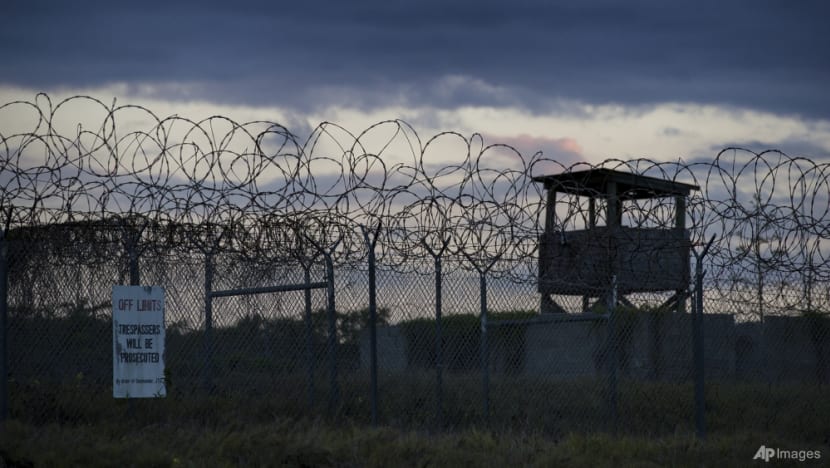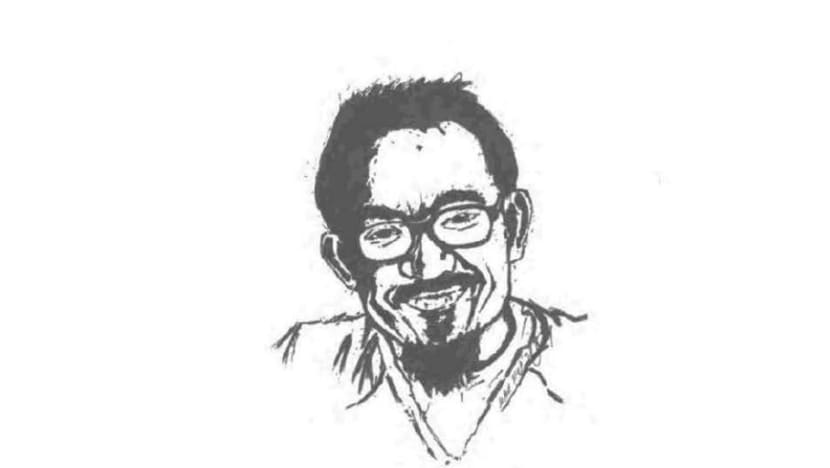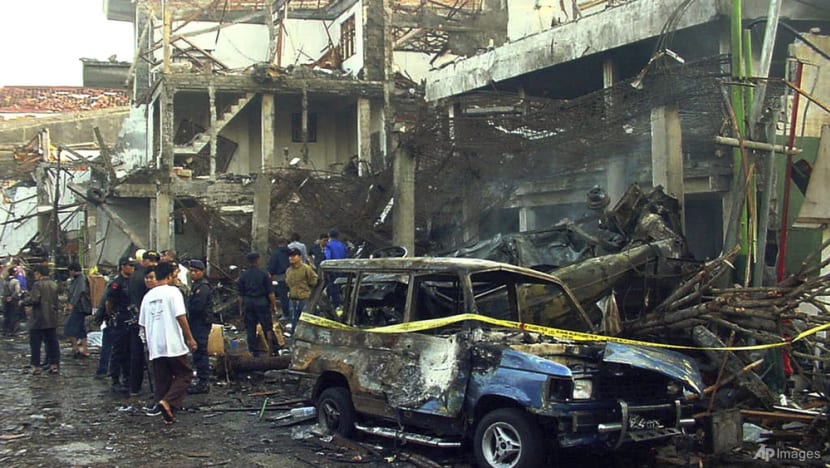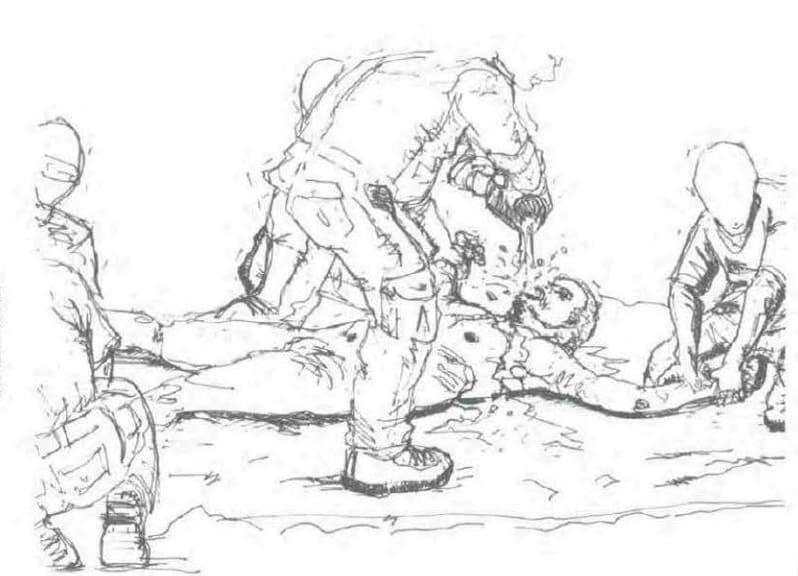analysis Asia
From Guantanamo Bay to Malaysia: Return of Bali bombing duo cheers their loved ones, but raises concerns over rehabilitation
The return of Nazir Lep and Farik Amin to Malaysia has caused some unease among the public, with some asking why the Malaysian government is taking back two people considered to be dangerous.


This audio is generated by an AI tool.
KUALA LUMPUR: Twenty-one years after they last saw him, the family of Mohammed Nazir Lep are still waiting for a chance to embrace him once more.
Nazir, 48, a detainee at the United States detention facility Guantanamo Bay in Cuba, was sent back to Malaysia on Dec 18 along with countryman Farik Amin, 49.
They had been in US custody since 2003 but were only sentenced in January this year by a military jury to 23 years’ confinement for conspiring in the 2002 Bali bombing that killed 202 people.
They ran errands for the bombing’s suspected mastermind Encep Nurjaman, an Indonesian also known as Hambali, and acted as couriers of funds traced to suspects of the bombing. The trio are the only three Southeast Asians to have been detained at Guantanamo Bay.
Nazir and Farik were handed over to Malaysia’s custody through a diplomatic arrangement reached as part of their guilty pleas and are allowed to be released after about five years.
Nearly two weeks after Nazir reportedly touched down on home soil, his brother Najib says he still does not know of his whereabouts.
"We are relieved that he is back in Malaysia, but we still have no information on his location currently," Najib told CNA.
Even as his family eagerly awaits updates, Nazir’s and Farik’s return to Malaysia has caused some unease among the public, with some asking why the Malaysian government is taking back two people considered to be dangerous.
“Please don’t accept them back. They might convince others about their ideology,” a commenter said in response to a news article about the duo.
Experts, however, say the government has a duty to take back its citizens and weighed in on how it can rehabilitate the repatriated pair and reintegrate them back into society.

NOT A FREE PASS, SAYS EXPERT
After the US Department of Defense announced Nazir’s and Farik’s repatriation on Dec 18, the Malaysian government said it had a reintegration plan for them.
In a social media post, Malaysia’s Home Minister Saifuddin Nasution Ismail said the duo will undergo a series of comprehensive deradicalisation programmes.
The rehabilitation plan will first emphasise support through their transition into a new “controlled environment”, followed by their reintegration into family life. The final goal is to ensure that they are “able to live independently and productively within the community”.
The police will conduct continuous monitoring through regular visits to assess their rehabilitation and ensure their welfare, said Saifuddin, who added that Malaysia is supportive of the repatriation based on the “principles of human rights and universal justice”.
The US Department of Defense had said on Dec 18 that in accordance with the pretrial agreements, authorities had on June 13 approved sentences of confinement for approximately five years for each of the two men and recommended that they be repatriated to a third-party sovereign nation to serve the remainder of the approved sentence.
CNA has reached out to the US Department of Defense and Malaysia's Home Ministry on the details of the repatriation and about the imprisonment terms in Malaysia.
Aizat Shamsuddin, the founder of Initiate.my – an initiative to promote tolerance and prevent violence – told CNA that as a sovereign state, Malaysia has a responsibility to retrieve its citizens, just as other countries have pursued similar repatriation processes.
“This is not merely a matter of morality; these are Malaysian nationals. Additionally, the US government’s decision to close the controversial Guantanamo detention facility – a facility that lacks legitimate jurisdiction over foreign nationals – further necessitates action,” he said.
Acknowledging there are those who oppose the repatriation, Aizat emphasised it is not a free pass funded by taxpayers.

“These individuals will be held accountable through Malaysia’s criminal justice system and undergo rehabilitation to ensure they do not pose a threat to society,” he said.
He added that the American and Australian governments would seek guarantees that they are no longer a threat to society. Eight-eight Australians were among the 202 killed in the 2002 Bali bombings.
A spokesperson for Australian foreign minister Penny Wong reportedly said in the wake of their repatriation: “While the arrangements for the transfer are a matter for the Malaysian and US governments, we have sought assurances from the Malaysian government that the individuals will be subject to ongoing supervision and monitoring.”
DRAWING FROM PAST EXPERIENCE
Diplomatic efforts to repatriate Farik and Nazir started years ago, with then-foreign minister Rais Yatim reportedly stating in 2009 that their return was being sought.
Malaysia is no stranger to taking back its citizens who have gone abroad for causes linked to militancy or extremism, and putting them through rehabilitation post-return.
Several Southeast Asian countries saw a wave of their citizens heading to Syria and Iraq after the Islamic State (IS) militant group declared a caliphate in 2014.
Malaysian police estimate about 122 Malaysians travelled to Syria and Iraq from 2011 to 2019, Ahmad El-Muhammady of the International Islamic University Malaysia noted in a policy brief for the International Centre for Counter-Terrorism think tank last year.
After IS’ fall, Malaysia’s efforts to repatriate those who had gone there to fight, as well as their families, faced protests due to fears it would endanger public safety and national security, Ahmad noted in his paper titled “Managing the Returning Foreign Terrorist Fighters and Their Families: Malaysian Experience”.
Despite the plan to bring back as many people as possible, Malaysian authorities successfully repatriated 16 individuals before the operation was suspended, he wrote.
Reasons for the suspension include prospective returnees’ reservations, the government losing contact with some of them after the US withdrawal from northern Syria, and concern among officials over working with a non-state actor in charge of the camps there.
From that experience, Ahmad wrote there is a need for a “holistic assessment” of foreign-trained fighters and their families, collaboration between the authorities and civil society organisations in reintegration efforts, and education opportunities for detainees and their families.
Aizat agreed the government has to implement a comprehensive and sustainable rehabilitation and reintegration programme.
The men must be given a chance to rejoin society through employment opportunities and participation in social activities, just like any other citizen and without stigma, he said.
“This reintegration must occur under close supervision by the authorities. Without such efforts, the risk of reoffending or returning to violent extremism significantly increases,” he added.
“With proper support and reintegration, they can transform into individuals who contribute positively to the nation.”
He said that the authorities must appoint qualified experts in fields such as psychology and criminology to address the root causes of their behaviour.
“This cannot be a one-off effort or overly reliant on theological correction alone. Instead, it should address the psychological issues and grievances of these two former high-value detainees stemming from their past radicalisation and mistreatment at the Guantanamo detention facility,” he said.
Farik, for one, has sketched the various forms of torture he allegedly experienced during interrogation at Guantanamo, which he submitted during his trial as part of his mitigation plea.
He and Nazir were arrested in Thailand in 2003 and placed in solitary confinement at a secret location operated by the US Central Intelligence Agency (CIA) before being transferred to Guantanamo Bay in 2006.
In its statement on Dec 18, the US Defense Department said it was focused on “responsibly” reducing the detainee population and ultimately closing the Guantanamo Bay facility.
It said 27 detainees remain there: 15 are eligible for transfer; three are eligible for a Periodic Review Board; seven are involved in the military commissions process; and two detainees have been convicted and sentenced by military commissions.
The detention centre is infamous for allegations of torture and has seen about 780 detainees since starting operations in 2002, with 753 transferred.
Criminologist Haezreena Begum Abdul Hamid of Universiti Malaya (UM) said there is a need to trust the rehabilitation process for the repatriated Malaysian duo.
“They are being monitored by the police; therefore I don't think there's much to worry about,” she said.
“I worry more about their vulnerability and the fact that many people would want to approach them.”
Added Haezreena, who works on deradicalisation cases: “We might get people who want to hail them as heroes, we might get researchers who want to get their narratives, media who want stories that might make them feel stressed and suffocated."
Confidentiality is important and law enforcers and experts need to be allowed to do their work, she said.
“You don't know what they are facing, whatever experiences they went through at one of the harshest prisons in the world, PTSD – you should think of them as human beings,” she said, using the acronym for post-traumatic stress disorder.
Providing an update on the men on Dec 18, Malaysia’s inspector general of police Razarudin Husain said: “Both individuals were received in good and healthy condition. They are very grateful to return home and finally reunite with their families.”

RETURNEES EXPRESS REGRET, APOLOGISE FOR ACTIONS
Both men have apologised for their actions, according to documents that have been released to the public.
Farik, who is from the town of Kajang in Selangor, was quoted as telling the court in January this year that he did not know about the Bali bombings until the aftermath.
He, however, apologised to the victims and said he took responsibility for his actions.
“As an older and wiser man, I regret my decision to participate in supporting action where so many people were killed. I am sorry for my actions. There are no words,” he said.
He also claimed to be a reformed man whose faith has evolved.
“I am feeling so much contentment and confidence in my faith. I am planning to go forward (and be) a good and peaceful Muslim. Like everyone, I must continue to decide every day to be a good person. Learning from one's mistakes and not repeating those mistakes is one way to be that person,” he said.
Nazir – whose lawyer Brian Bouffard has said the two men were "gofers" who were not directly involved in the bombings – apologised to families of the victims in court. A gofer is someone who runs errands.
“I received pictures of some of the victims, and I will carry their faces in my mind for the rest of my life,” said Nazir.
“I imagine what their daily lives would be like and think about their future that I helped take away. My actions were wrong, and I will live … with what I did forever.”
For Nazir’s family, there is no question of their willingness to welcome him back. In 2020, the family even built a house for him on his late parents' land in Muar. The intention was for him to pursue farming and live a normal life.
"The most important thing is that he is back home. The house has been there since 2020, serving as proof to the Americans that the family was ready to accept him,” Najib said.




















